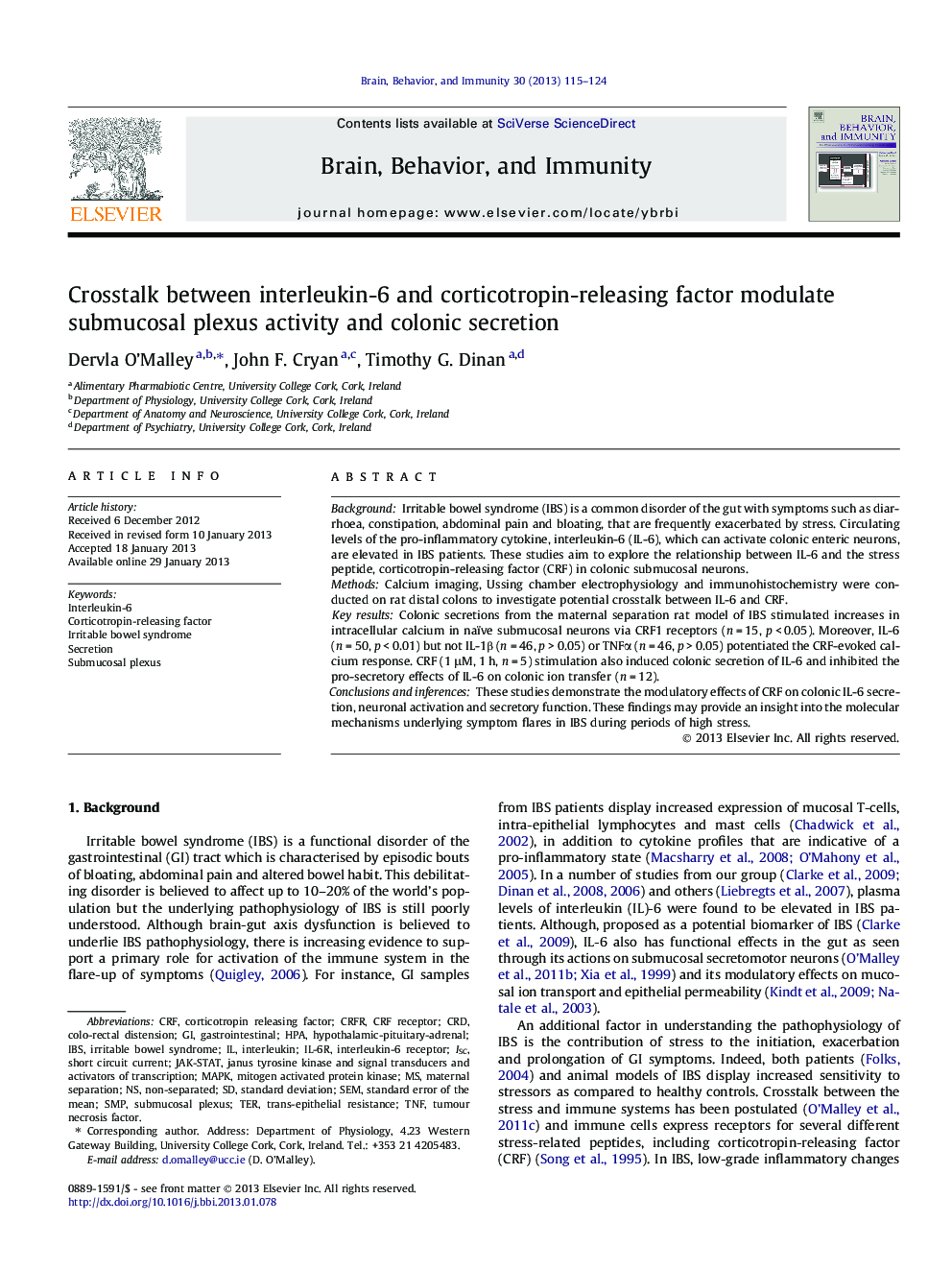| Article ID | Journal | Published Year | Pages | File Type |
|---|---|---|---|---|
| 922035 | Brain, Behavior, and Immunity | 2013 | 10 Pages |
BackgroundIrritable bowel syndrome (IBS) is a common disorder of the gut with symptoms such as diarrhoea, constipation, abdominal pain and bloating, that are frequently exacerbated by stress. Circulating levels of the pro-inflammatory cytokine, interleukin-6 (IL-6), which can activate colonic enteric neurons, are elevated in IBS patients. These studies aim to explore the relationship between IL-6 and the stress peptide, corticotropin-releasing factor (CRF) in colonic submucosal neurons.MethodsCalcium imaging, Ussing chamber electrophysiology and immunohistochemistry were conducted on rat distal colons to investigate potential crosstalk between IL-6 and CRF.Key resultsColonic secretions from the maternal separation rat model of IBS stimulated increases in intracellular calcium in naïve submucosal neurons via CRF1 receptors (n = 15, p < 0.05). Moreover, IL-6 (n = 50, p < 0.01) but not IL-1β (n = 46, p > 0.05) or TNFα (n = 46, p > 0.05) potentiated the CRF-evoked calcium response. CRF (1 μM, 1 h, n = 5) stimulation also induced colonic secretion of IL-6 and inhibited the pro-secretory effects of IL-6 on colonic ion transfer (n = 12).Conclusions and inferencesThese studies demonstrate the modulatory effects of CRF on colonic IL-6 secretion, neuronal activation and secretory function. These findings may provide an insight into the molecular mechanisms underlying symptom flares in IBS during periods of high stress.
► CRF modulates the stimulatory effects of IL-6 on neuronal excitation and colonic secretion thereby revealing a molecular mechanism for stress-induced symptom flares in IBS.
